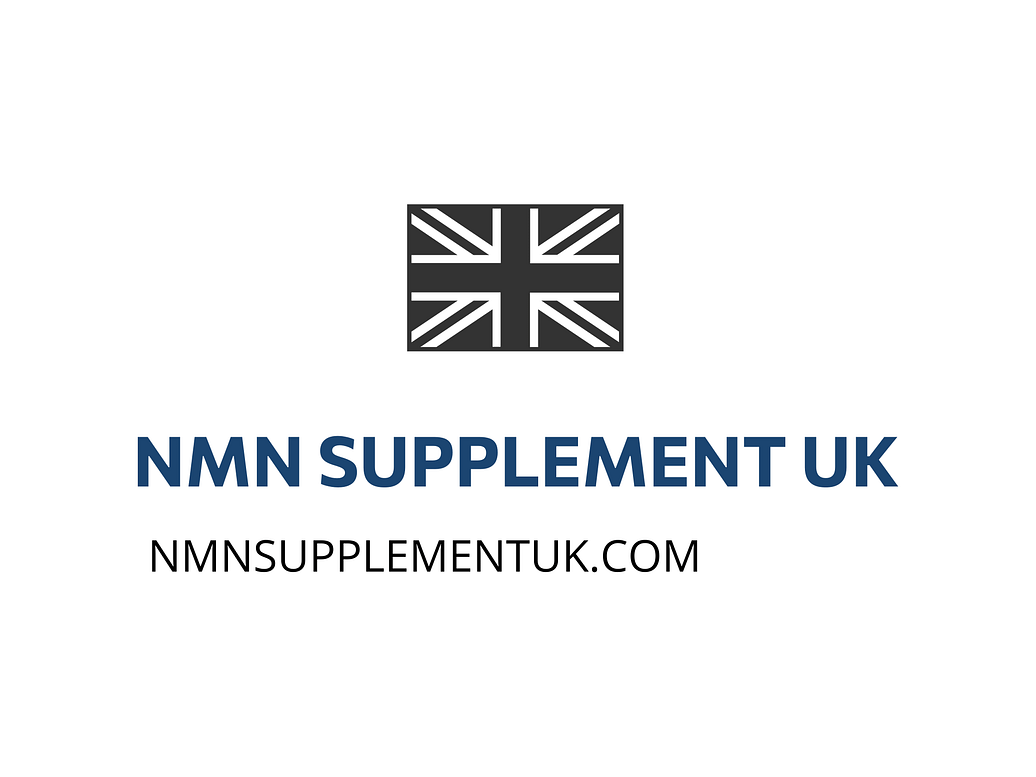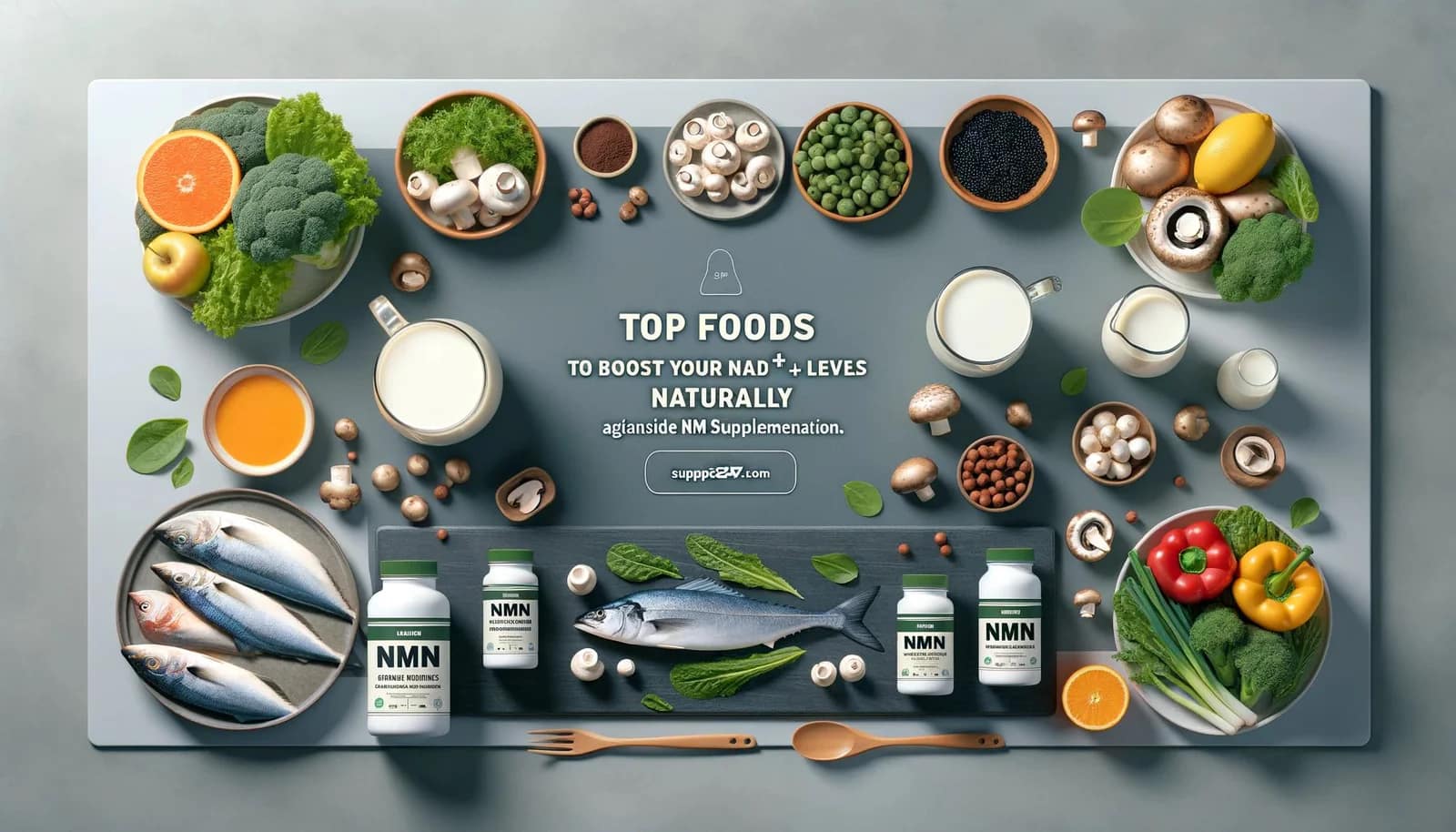Top Foods That Naturally Boost NAD+
Top Foods That Naturally Boost NAD+ (NMN Alternatives)
While NMN supplementation remains the most efficient way to boost NAD+ levels significantly, incorporating certain foods into your diet can provide additional support for your body’s NAD+ production. This article explores natural dietary sources that can help maintain NAD+ levels, while explaining why these alone may not be sufficient for optimal results.
Understanding NAD+ in Food Sources
Before diving into specific foods, it’s important to understand that while certain foods can support NAD+ production, their impact is relatively modest compared to direct NMN supplementation. This is because:
- Dietary precursors must go through multiple conversion steps
- Absorption rates from food sources are limited
- The amount of precursors in food is relatively small
- Digestive processes can reduce bioavailability
- Age-related decline in NAD+ is significant
Top Foods That Support NAD+ Production
1. Fish and Seafood
Rich in vitamin B3 (niacin) and its precursors:
- Tuna
- Salmon
- Sardines
- Mackerel
- Anchovies
While beneficial, it’s worth noting that you would need to consume impractically large amounts of these foods to achieve the NAD+ boost comparable to NMN supplementation.
2. Dairy Products
Contains precursors that can support NAD+ production:
- Milk
- Cheese
- Yogurt
- Whey protein
- Cottage cheese
However, the conversion process from these precursors to NAD+ is less efficient than direct NMN supplementation.
3. Mushrooms
Various mushrooms provide NAD+ precursors:
- Crimini mushrooms
- Portobello mushrooms
- Shiitake mushrooms
- Button mushrooms
- Oyster mushrooms
While nutritious, the NAD+ boost from mushrooms is minimal compared to dedicated supplements.
4. Vegetables
Several vegetables contain compounds that support NAD+ production:
- Green peas
- Asparagus
- Broccoli
- Brussels sprouts
- Cucumber
These provide healthy nutrition but offer relatively modest NAD+ support.
5. Whole Grains
Contain B vitamins that can contribute to NAD+ production:
- Brown rice
- Quinoa
- Whole wheat
- Barley
- Oats
Why Food Sources Alone May Not Be Sufficient
Limited Bioavailability
Several factors affect the efficiency of obtaining NAD+ precursors from food:
- Digestive breakdown
- Limited absorption
- Competition with other nutrients
- Processing losses
- Storage degradation
Age-Related Considerations
As we age, several factors make food sources less effective:
- Reduced absorption efficiency
- Decreased conversion capability
- Higher NAD+ requirements
- Digestive changes
- Metabolic alterations
Practical Limitations
Relying solely on food sources presents challenges:
- Need for excessive consumption
- Dietary restrictions
- Cost considerations
- Time constraints
- Preparation requirements
The Case for NMN Supplementation
While maintaining a healthy diet is important, NMN supplementation offers several advantages:
1. Superior Efficiency
- Direct precursor to NAD+
- Higher bioavailability
- More consistent dosing
- Rapid absorption
- Better results
2. Convenience
- Easy to incorporate into daily routine
- No preparation needed
- Precise dosing
- Year-round availability
- Cost-effective per dose
3. Reliable Results
- Scientifically proven effectiveness
- Consistent potency
- Quality control
- Measurable outcomes
- Standardized delivery
Combining Diet and Supplementation
The optimal approach involves:
1. Foundational Nutrition
- Consume NAD+-supporting foods
- Maintain balanced diet
- Focus on whole foods
- Include variety
- Ensure adequate protein
2. Strategic Supplementation
- Regular NMN supplementation
- Consistent timing
- Appropriate dosing
- Quality products
- Monitored results
Maximizing NAD+ Support
For best results, consider:
1. Lifestyle Factors
- Regular exercise
- Adequate sleep
- Stress management
- Sun exposure management
- Hydration
2. Dietary Practices
- Regular meal timing
- Balanced macronutrients
- Adequate micronutrients
- Limited processed foods
- Alcohol moderation
Conclusion
While incorporating NAD+-supporting foods into your diet is beneficial for overall health, it’s important to recognize their limitations in significantly boosting NAD+ levels. NMN supplementation remains the most practical and efficient method for maintaining optimal NAD+ levels, especially as we age.
A balanced approach includes:
- Consuming a variety of NAD+-supporting foods
- Regular NMN supplementation
- Healthy lifestyle practices
- Proper nutrition
- Consistent monitoring of results
For those serious about maintaining optimal NAD+ levels, combining a healthy diet with quality NMN supplementation provides the most comprehensive and effective strategy.







